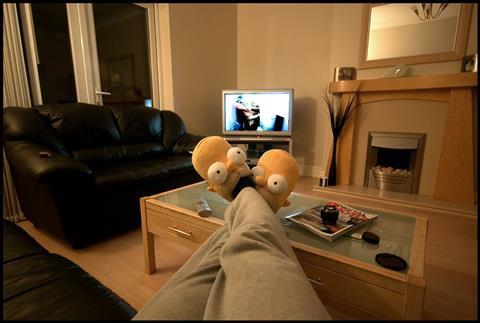In the rush to get back to in-person gatherings, let’s not forget the opportunities that have come from online church, says Martin Erwin

As churches responded to the Covid-19 pandemic in spring 2020, many found that they were able to connect online in ways that they had rarely – or ever - tried before. At times, it felt like jumping into a fast-flowing river with flimsy arm bands on and no swimming lessons. Though there was much practical trial and error for most churches, the outcomes have, on the whole, been positive for many. But what will the long term consequences be for the Church, now that life is (slowly) returning to normal?
As restrictions began to lift this year, many church leaders were determined to get back to in-person gatherings as soon as possible. As well as acknowledging the heartache of not being physically present with one another and the strangeness of worshipping over Zoom, many are also concerned that online church is creating a generation of pyjama Christians; a flock who prefer cornflakes or croissants as an accompaniment to ‘watching’ church while lounging in their dressing gowns. “Can you fast-forward this bit? Pass the sugar please.”
Joe hadn’t been to church for years, but he’d been tuning in every Sunday for months
Ahead of the Counties Connect Conference this week, I caught up with Nicky Gumbel, vicar of Holy Trinity Brompton (HTB) and pioneer of the Alpha course, to explore some of these issues further. Like many churches, HTB did not stream their Sunday services before Covid-19.
“We simply did not want other Christians to tune into us instead of attending their own local church,” said Nicky. Then, the global pandemic changed everything. “We began to pre-record our services and show them on YouTube and Facebook.” The experience of attending HTB could suddenly be experienced anywhere.
In my own church, we also began pre-recording services. My wife, who is the church family worker, became TV editor, producer and movie maker. Our teenage daughters, who, like many teens, were a challenging test audience, were encouraged to “get off your phones and watch church!”
Back to normal
For the regular church member, this last year has been tough. Many churches will have shrunk numerically and some may even close, as regulars have found ‘other’ things to do on a Sunday morning. This evidence, that pyjama Christianity is bad for the Church, is the primary motivation for many churches to want to ‘get back to normal’ as quickly as possible. But what if something else has also been going on?
Choosing to participate from home isn’t about people dropping out, it’s about people leaning in
Polls conducted last year showed that 24 per cent of people in the UK watched or listen to a religious service online during the first lockdown. Significant anecdotal evidence bears this out. For example, Joe popped up on our after-service Zoom chat room in December. We were promoting an online Alpha course in our Sunday online service. I had never met Joe before. “Church attendance must be massive Martin,” he commented. “I haven’t been to church for years, but I’ve been tuning in every Sunday for months. I feel like I know you,” he said.
Sixteen people joined that Alpha course, most of whom I had never met, and almost all as a result of watching our online service. Months later, as lockdown eased, we met for a BBQ hosted by Joe. “Alpha has changed my life,” he said. “The things I believed in my head have become real. I love to pray and read my Bible and I feel God is with me every day.”
Deeper connections
Nicky Gumbel says: “I’ve discovered that online church is connecting with two types of people – those who travel and are unable to attend each week, and those who are unwell or housebound.” It is also true that, for some people, attending church physically, or even going to an Alpha course in person, is a step too far. Tuning in online is a great way to investigate without losing anonymity, like Zacchaeus in the gospels, who climbed a tree to see Jesus but hoped not to be noticed.
Aderyn Taylor-Roberts, who will also be speaking at the conference says: “what we have to understand quickly is that this trend, of more people accessing the church online and choosing to participate from home, isn’t about people dropping out. It’s about people who are leaning in.”
The church is called to mission; to reach people with the gospel and make disciples. Yes, there is a danger that some will choose to stay at home and ‘watch church’ instead of fully engaging, and that others will not come back at all. But maybe what was on offer before was not as perfect as we think. If church is a community, perhaps too much of what we did before was geared up for a consumer mind-set, for sitting in rows and watching.
Blended Church
The Zoom experience of church can provide more opportunity for open discussion and engagement. One friend told me that participating in Zoom church over the past 12 months has deepened her relationship with God in ways that many years of attending church in person had not. It is clear that the challenge is not to give up on online church but rather to take the learning from it into our expression and experience of both physical and virtual church moving forwards.
So what is ‘blended church?’ How do we create genuine community? How do we use digital technology to reach the world for Christ, and, at the same time, draw people into genuine discipleship, both online and in person? At the Counties Connect Conference this Friday we will seek to wrestle with these questions as we explore church in a post-Covid world.
The Counties Connect Conference takes place this Friday 25th June from 3pm - 9pm. To book your ticket, go to: www.connect-conference.org


































